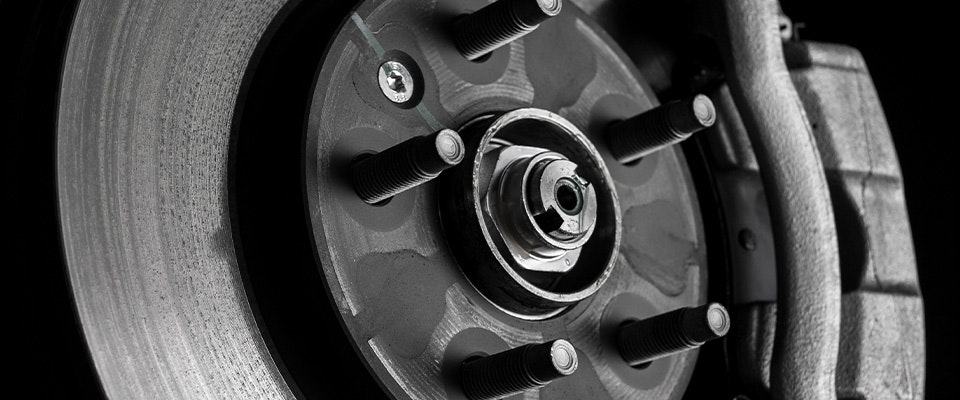
The next generation of Braking is here!
The next generation of braking is here with the Repco RCT pads.
Read moreHow often should I have my brakes inspected?
Brakes should be inspected as part of the regular service schedule.
How often should brakes be serviced?
Brakes are checked at each service and need replacing when brake pad thickness is @ 1.5mm.
Do you bleed the brakes during a standard brake service?
Yes, brake fluid quality is checked in service intervals and requires flushing when contaminated, commonly caused by excess moisture.
Do you flush the brake fluid during a standard brake service?
Yes brake fluid is flushed during a standard brake service if required.
How often should I change my brake pads?
Brake pads minimum thickness is 1.5mm and then should be replaced.
How often should I change my brake rotors?
All brake rotors have a minimum thickness and maximum surface wear of 1.5mm.
Do you provide Digital reports for the work you have done?
Yes all work done on your vehicle is recorded on your invoice and can be emailed to you.
Will I receive a digital report of anything you find wrong?
Yes anything that is found wrong with the vehicle will be recorded on your invoice and can be emailed to you.
Should my brakes be machined?
Yes - when changing brake pads or shoes to gain maximum braking efficiency brakes should be machined.
What brake services do you offer?
Any services required for brakes are offered by Wilkie's Auto Centre, e.g. replacing front and rear brake pads, shoes, cylinders, rotors, etc.
How can I pay for my brake service?
You can pay for your brake service by cash or credit card (We accept AMEX).
How can I book my car in for a brake service?
You can book you car in for a brake service either by contacting the office or online via the website
Why are my brakes squealing?
The most common cause of squealing brakes is that the surfaces could be glazed due to lack of use or poor quality brake pads.
Why are my brakes squeaking (rather than squealing)?
The most common cause of squeaking brakes is that the brake pads are nearly worn out and the brake indicator is rubbing on the rotor.
Why are my brakes Grinding?
Brakes grinding is a sign that the brake pads require replacing. This could be due to brakes being worn out, debris in brake caliper, poor quality brakes, warped brake rotors, etc.
Why do my brakes feel they are "Pulling"?
Usually, when the brakes feel like they are ‘pulling’ it means a seized or flexible brake line collapsing.
Why does my brake pedal feel "squishy"?
Brakes will feel “squishy” when air is in the system. This can be rectified by bleeding the brakes.
Why do my brakes vibrate when I am stopping?
Brakes vibrate when stopping because the disc rotor is warped and requires either machining or replacing.
My car makes a squeaking noise while driving which goes away when I apply the brake?
Brake pads are nearly worn out when there is a squeaking noise while driving and goes away when applying the brake. The brake indicator is touching the rotor when you apply your foot on the pedal, the pad moves into a different position allowing the indicator to move off the rotor.
What would cause the brake pedal to travel down a lot farther than it used to?
Air in the braking system or brakes out of adjustment will cause the brake pedal to travel down a lot farther than it should.
What are brake pads?
Brake pads are made of a composite material which are located between the caliper and rotor.
What’s a brake rotor?
The brake rotor is a circular disc that is connected to each wheel which the brake pad presses against to stop the vehicle.
What’s a brake caliper?
The brake caliper acts as a bracket to squeeze the brake pads on the rotor to stop the vehicle.
What is a brake hose?
A brake hose supplies brake fluid between master cylinder and caliper.
What is the cost of a brake service?
Every vehicle is has different situations and can only be quoted upon inspection.
What is the most common problem with brakes you see?
The most common problem that we encounter is that the brake pad is worn out.
What causes brake failure?
Brake failure is usually caused by lack of regular maintenance.
What is an anti lock system and what does it do?
Anti locking braking system, more commonly known as ABS, is a system to prevent the wheels from locking and skidding when the driver applies the brakes hard or on slippery roads. It uses sensors to detect motion and speed of the vehicles wheels and then sends a signal to a module or valve that regulate the brake pressure. It allows the driver to maintain steering control and stop the vehicle effectively.
Which brakes do most of the work, front or rear?
The front brake do most of the work, approx. 60% and the rear does roughly 40%.